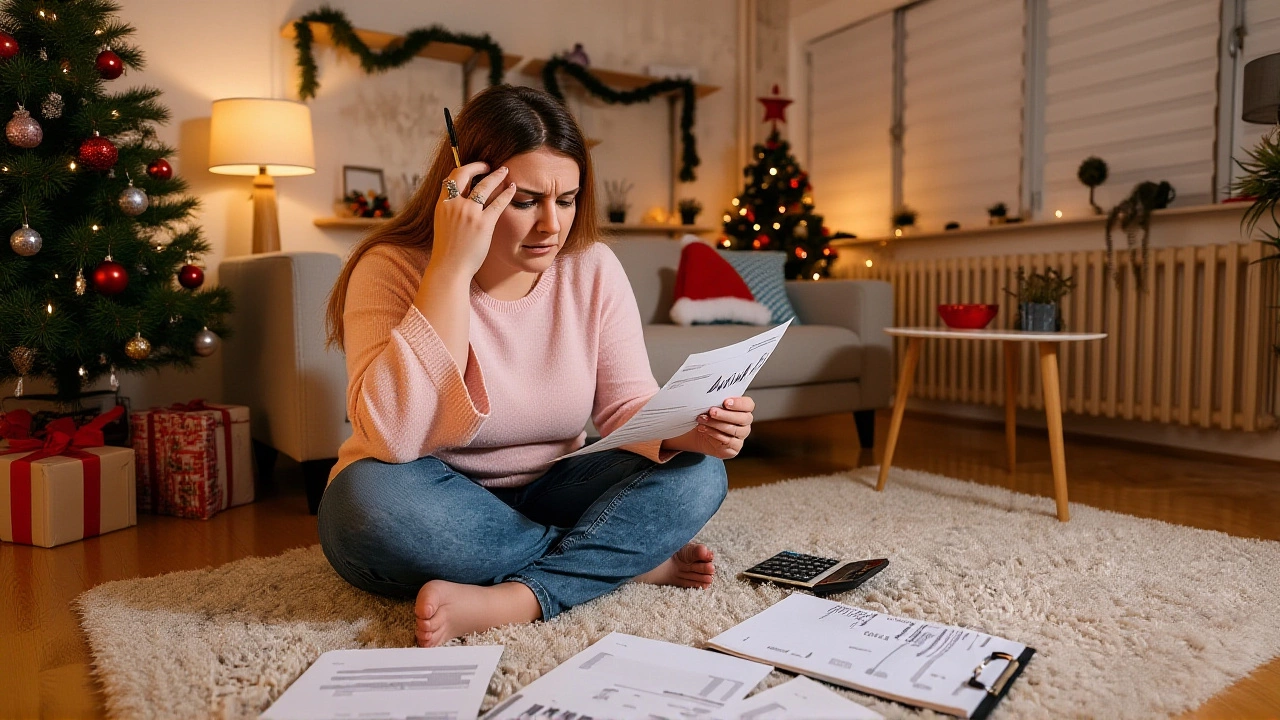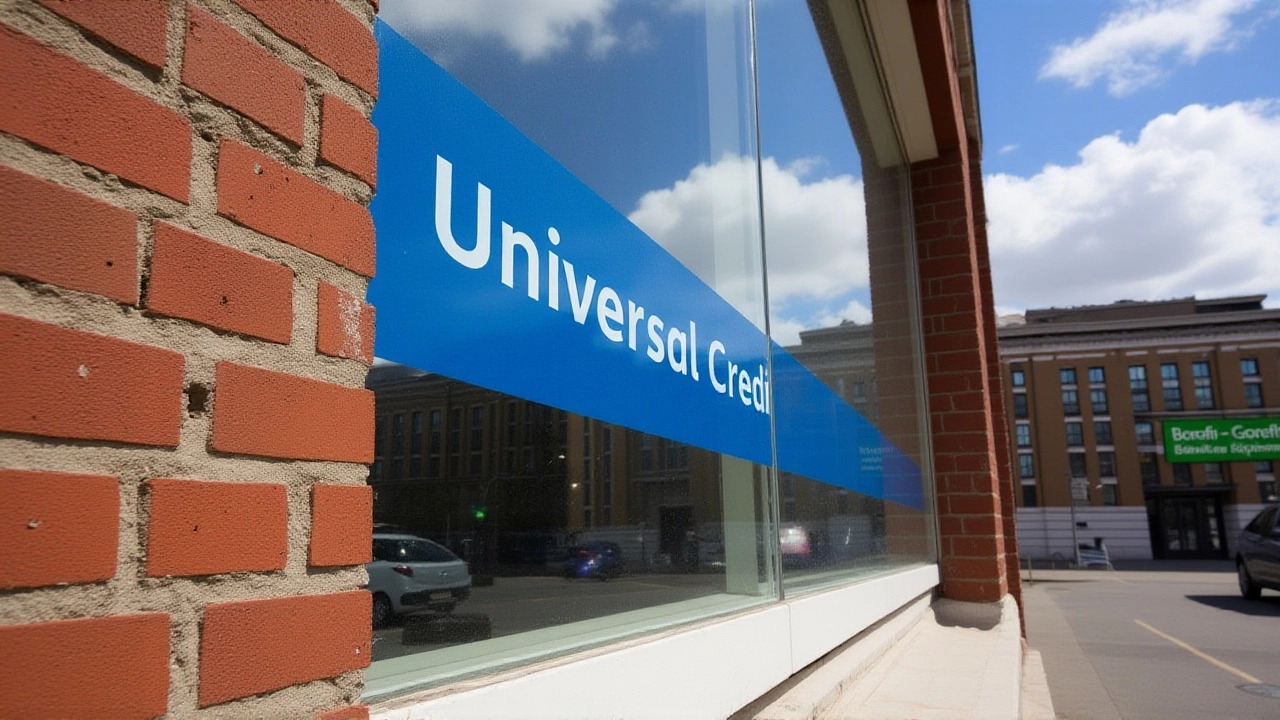DWP Moves Christmas 2025 Benefits to Dec 22 as £10 Bonus Draws Criticism

On November 23, 2025, the Department for Work and Pensions confirmed a major shift in its holiday payment schedule: all benefits due on December 25 or 26, 2025, will be paid early — on December 22, 2025. This isn’t just administrative housekeeping. For the 20 million people across the UK who rely on these payments to cover rent, groceries, and heating bills, it’s a lifeline timed to avoid the financial blackout of Christmas Day and Boxing Day. And while the DWP’s move is routine, the £10 Christmas bonus attached to it has reignited a bitter debate: why has this one-off payment stayed frozen at £10 since 1996 — even as inflation has more than doubled the cost of living?
Why December 22? It’s Not Arbitrary
The DWP doesn’t make these changes lightly. Their policy, clearly laid out on GOV.UK, states that if a payment date falls on a weekend or bank holiday, it’s moved to the last working day before. December 25 and 26 are both public holidays in the UK, so payments due then are automatically shifted. But this year, the DWP went a step further: instead of scattering early payments across December 22–24, they’ve unified them all to December 22. Why? To simplify things for recipients and reduce confusion. "We want people to know exactly when to expect their money," a DWP spokesperson said in a statement. "No one should be wondering if their rent payment will clear on Christmas Eve."
That’s good news for recipients of Universal Credit, State Pension, Personal Independence Payment (PIP), Disability Living Allowance (DLA), Attendance Allowance, Pension Credit, Employment and Support Allowance (ESA), and several others. These payments — some weekly, some monthly — will now arrive together, giving families a clearer financial picture heading into the holidays.
The £10 Bonus: A Symbol of Stagnation
Alongside the early payments comes the Christmas bonus — a one-off £10 payment automatically given to anyone receiving one of the qualifying benefits during the "first full week of December." That’s December 1–7, 2025. Most people will see it between December 4–8, though the DWP says it could arrive any time before New Year’s Eve.
Here’s the kicker: this bonus hasn’t increased in value since 1996. That’s 29 years. Adjusted for inflation, £10 in 1996 is worth roughly £23 today. In real terms, the bonus has lost more than half its purchasing power. "It’s not a bonus anymore — it’s a symbolic gesture," said Dr. Lila Chen, an economist at the Institute for Fiscal Studies. "If you’re on PIP or Attendance Allowance, you’re likely paying for mobility aids, heating, or home care. £10 won’t even cover a week’s worth of electricity in many parts of the UK."
Advocacy groups like Disability Rights UK and Age UK have called the bonus "a national embarrassment." In a joint statement released on November 24, they urged the government to raise it to £50 — "a baseline for dignity during the holidays." The DWP hasn’t responded to the demand. Meanwhile, the bonus remains tied to the same 11 benefits: PIP, DLA, Attendance Allowance, Pension Credit, Child Disability Payment, ESA, Adult Disability Payment, Carer’s Allowance, Carer Support Payment, Armed Forces Independence Payment, and Incapacity Benefit. No one else qualifies. Not even those on Universal Credit who aren’t receiving one of those specific benefits.

How Payments Work — And Why Timing Matters
The DWP’s payment system is a complex web. Some people get paid weekly — like Carer’s Allowance recipients who opt for weekly disbursements. Others, like Universal Credit claimants, receive one lump sum monthly. Pensioners on State Pension typically get paid every four weeks. The timing of these cycles matters. If your payment lands on December 24, you might be fine. But if it lands on December 26 — a bank holiday — and you’ve already spent your last £20 on Christmas dinner, you’re left with nothing until the 29th.
That’s why the early payment on the 22nd is so critical. "I’ve got two kids, a disabled partner, and my heating bill doubles in winter," said James Turner, a PIP recipient from Bradford. "If my money came on the 25th, I’d be eating beans on toast on Christmas Day. The 22nd? That’s when I buy the turkey."
The DWP insists it’s "following longstanding practice." And they’re right — they’ve done this every year since 1972, when the bonus was introduced. But the world has changed. The cost of winter fuel has surged. Food prices remain elevated. And with the cost of living still 30% higher than pre-pandemic levels, the £10 bonus feels less like support and more like an afterthought.

What’s Next? Pressure Builds for Change
Financial analysts at Meyka.com are advising beneficiaries to use the DWP’s budgeting tools to plan ahead. "If you’re expecting your payment on the 22nd, don’t wait until then to start saving," they wrote in a recent guide. "Set aside even £5 a week from now — it adds up."
But many say that’s not enough. With the next general election looming in 2026, pressure is mounting. Labour’s shadow welfare secretary, Sharon Hodgson, has already signaled support for a bonus increase. "The £10 Christmas bonus is a relic," she said on BBC Radio 4. "It’s time we treated people with dignity, not with pennies."
The DWP has not announced any plans to review the amount. But with inflation still above 2% and winter energy bills expected to rise again, the silence is deafening. If the bonus stays frozen, the 2026 holiday season could see a wave of public protests — and not just from benefit recipients. Their families, friends, and communities are watching. And they’re asking: Why does this still exist at all — if it doesn’t mean anything anymore?
Frequently Asked Questions
Who gets the £10 Christmas bonus in 2025?
You qualify automatically if you’re receiving one of 11 specific benefits during the first full week of December 2025: PIP, DLA, Attendance Allowance, Pension Credit, Child Disability Payment, ESA, Adult Disability Payment, Carer’s Allowance, Carer Support Payment, Armed Forces Independence Payment, or Incapacity Benefit. No application is needed — it’s paid directly into your account between December 4–8, though it may arrive anytime before December 31.
Why is the bonus only £10 — and why hasn’t it increased?
The £10 Christmas bonus was introduced in 1972 and has remained unchanged since 1996, despite inflation eroding its value by over 50%. The government has never formally reviewed the amount, arguing it’s a "symbolic gesture." Critics say it’s now a token that fails to reflect real-world costs, especially for those paying for heating, mobility aids, or home care.
Will my Universal Credit payment be moved to December 22?
Yes — if your usual Universal Credit payment date falls on December 25 or 26, 2025, it will be paid on December 22. This applies to all benefits scheduled for those dates, regardless of frequency. The DWP has confirmed a unified early payment date to avoid confusion and ensure timely access to funds during the holiday period.
Can I get the Christmas bonus if I’m not on one of the listed benefits?
No. The bonus is strictly limited to recipients of the 11 qualifying benefits. Even if you’re on Universal Credit but not also receiving PIP, ESA, or another listed benefit, you won’t qualify. This exclusion has drawn criticism from charities, who argue it leaves out many low-income households who still face severe financial strain during the holidays.
What if I don’t have a bank account? Will I still get paid?
The DWP pays all benefits directly into bank, building society, or credit union accounts. If you can’t open or manage one, you may qualify for a Payment Card — a prepaid card issued by the DWP. You must apply for this alternative separately through your case manager. Cash payments are no longer offered under current policy.
Is there a chance the £10 bonus will increase in 2026?
There’s no official indication yet, but political pressure is growing. With inflation still high and public scrutiny increasing, advocacy groups and opposition parties are pushing for a £50 minimum. A decision is expected in early 2026, ahead of the next budget. If the government ignores the calls, expect widespread campaigns and media attention — this issue is no longer just about money. It’s about dignity.



